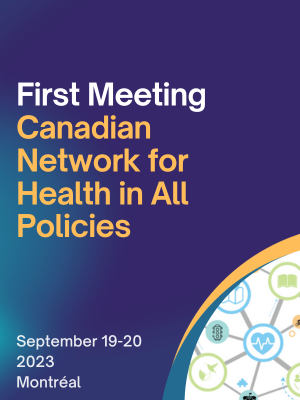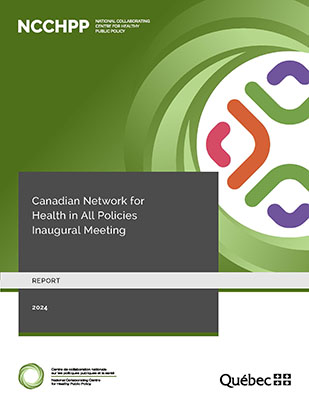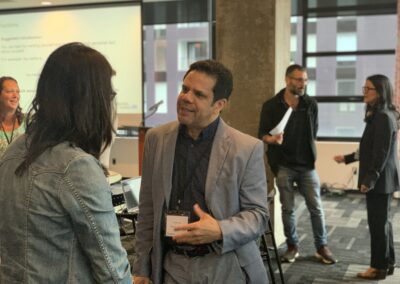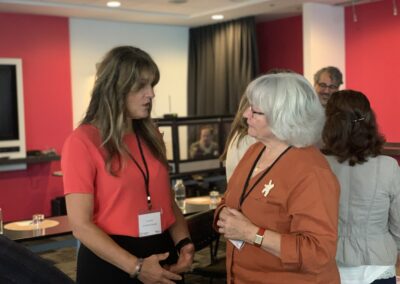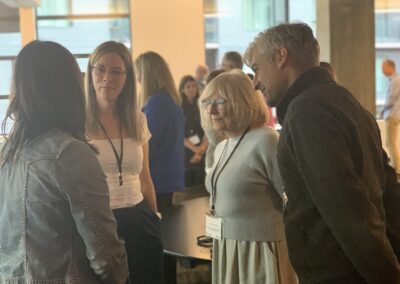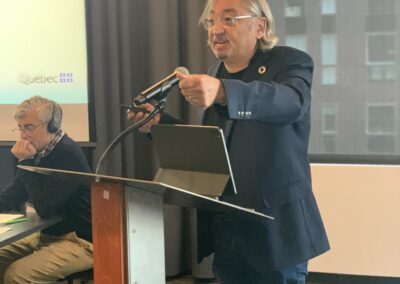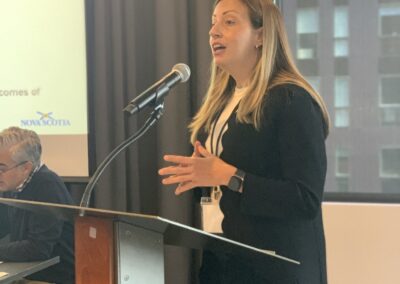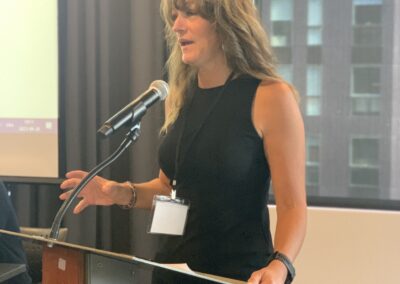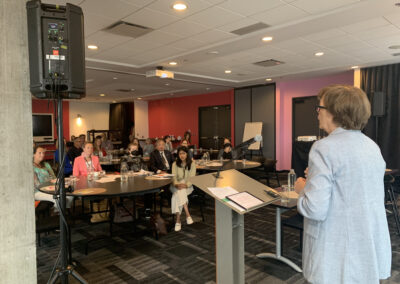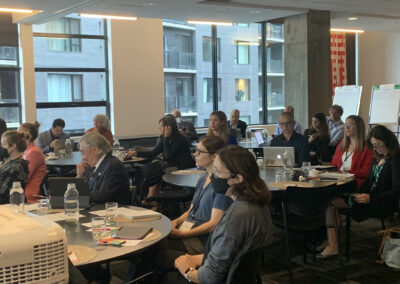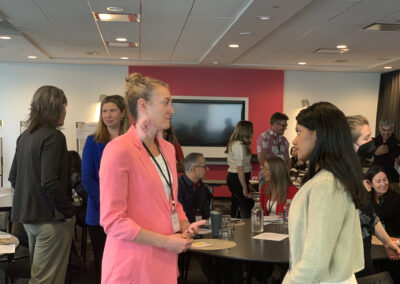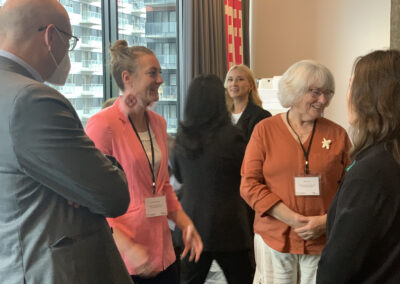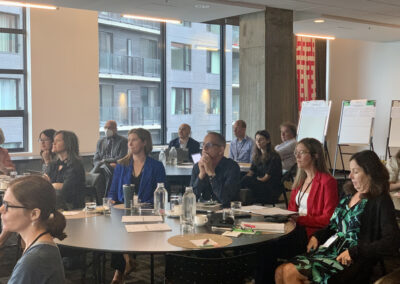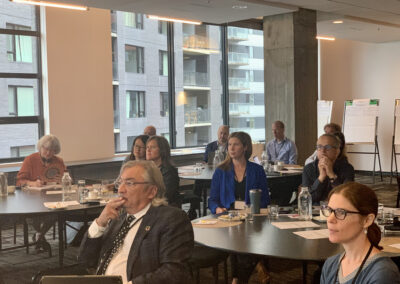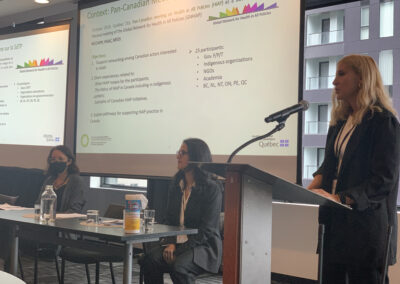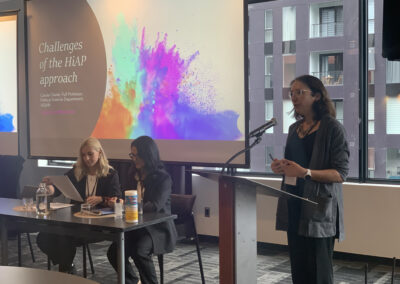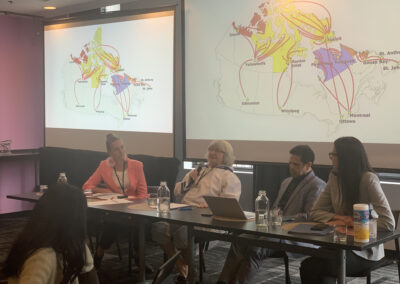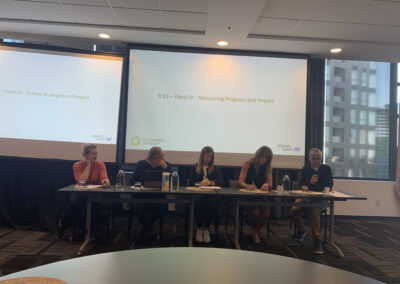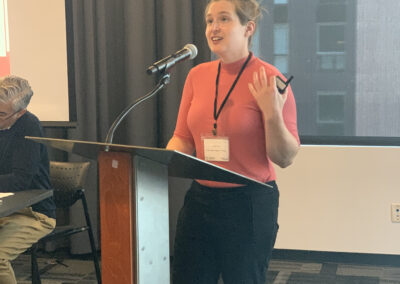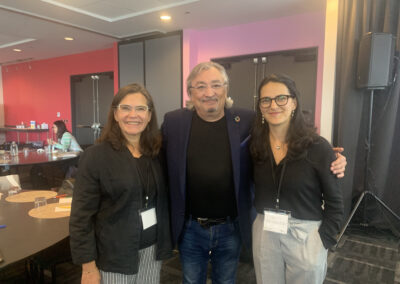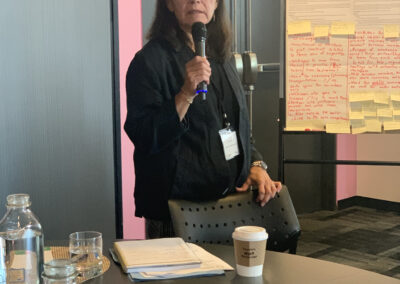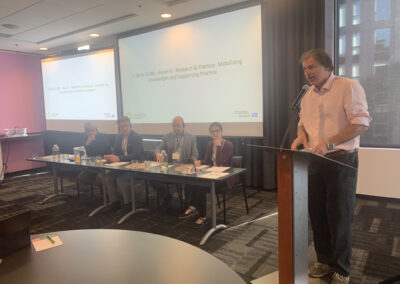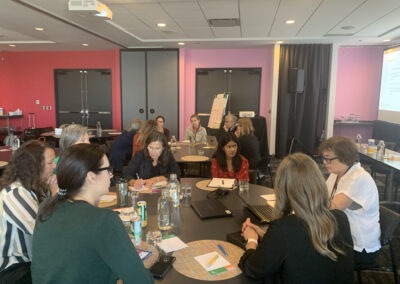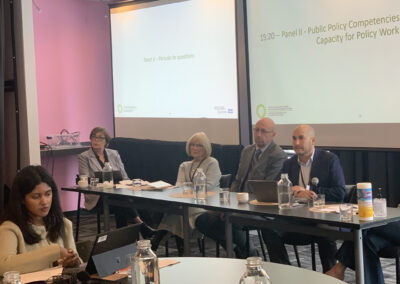Working Together for Population Health and Health Equity
In September 2023, the Canadian Network for Health in All Policies (CNHiAP) held its first meeting, with participation from about 20 public health actors, including government representatives from the federal, territorial, provincial, regional and municipal levels, Indigenous organizations, and universities from across Canada.
This 2-day event was entitled Working Together for Population Health and Health Equity and pursued the following objectives:
- To bring together the inaugural members of the CNHiAP and set the scene for the Network’s work.
- To discuss and confirm work priorities for the Network.
- To explore how we can work together.
The meeting’s program is available here.
Meeting Report
The meeting report is now available online. It features a summary of the discussions and reflections for future CNHiAP activities. To read the report, click here.
Presentations
Day 1 – September 19, 2023
Network background and context
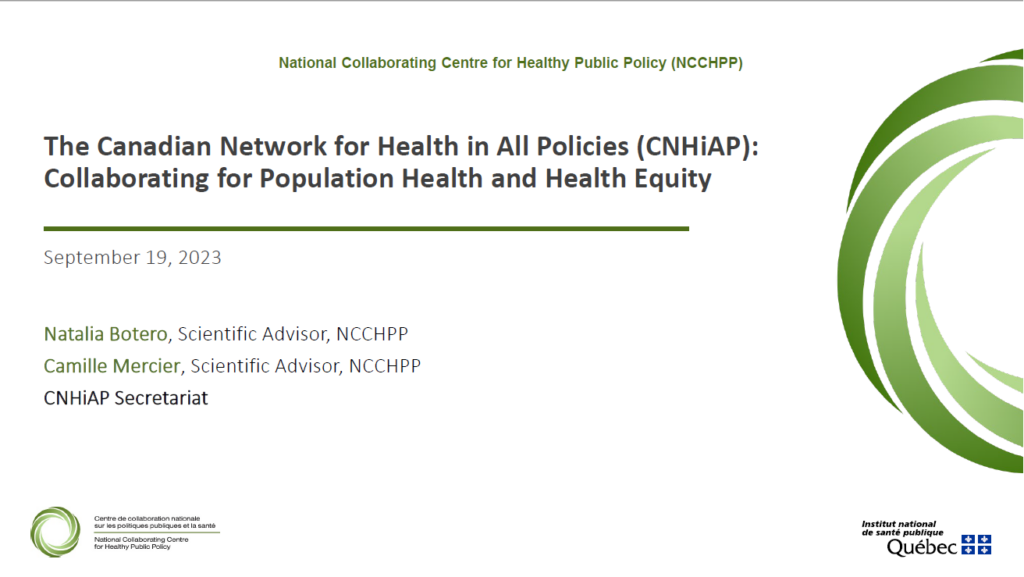 |
1. The Canadian Network for Health in All Policies (CNHiAP): Collaborating for Population Health and Health Equity Presented by Natalia Botero and Camille Mercier, Scientific Advisors, NCCHPP |
Challenges of the HiAP Approach
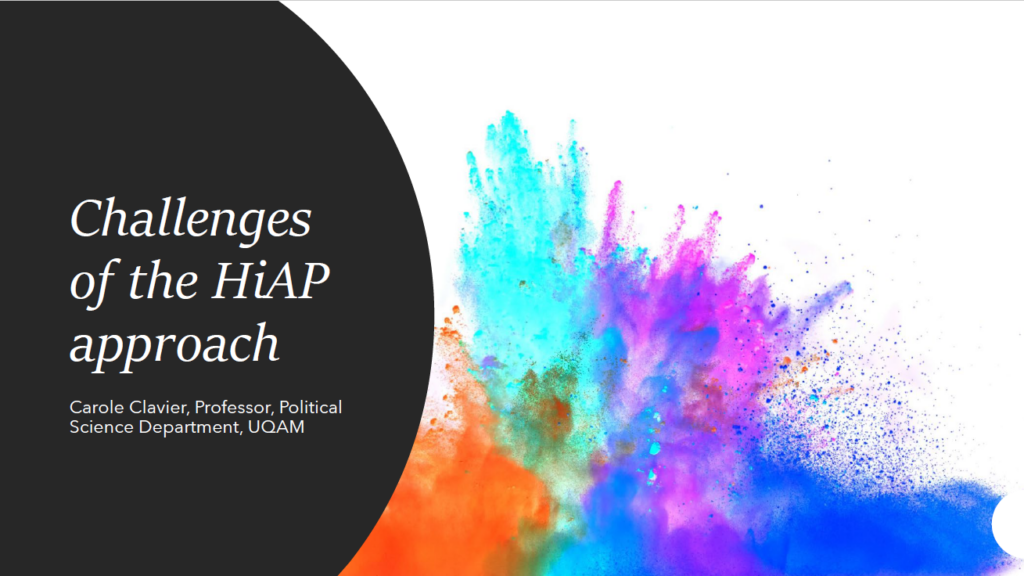 |
2. Challenges of the HiAP Approach Presented by Carole Clavier, Professor, Département de science politique, UQAM. |
Panel I – Conceptions of Health and Wellbeing & HiAP: Working Towards Approaches that Integrate First Nations, Inuit, and Métis Ways of Knowing and Governing
| 3. This Powerpoint Presentation will soon be available online: Health in All Policies – Mental Wellness: First Nations Governance & Priorities Presented by Becky Carpenter, Policy Analyst, First Peoples Wellness Circle (FNWC) |
|
 |
4. HiAP Approaches from the Inuit Perspective Presented by Gail Turner, Former Director (retired), Health Services, Nunatsiavut Government, Northern Labrador |
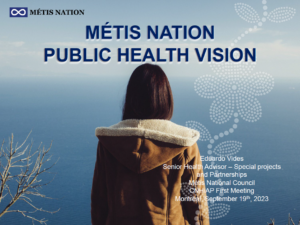 |
5. Métis Nation Public Health Vision Presented by Eduardo Vides, Senior Health Advisor – Special Projects and Partnership, Métis National Council |
Panel II – Public Policy Competencies and Tools: Creating Capacity for Policy Work
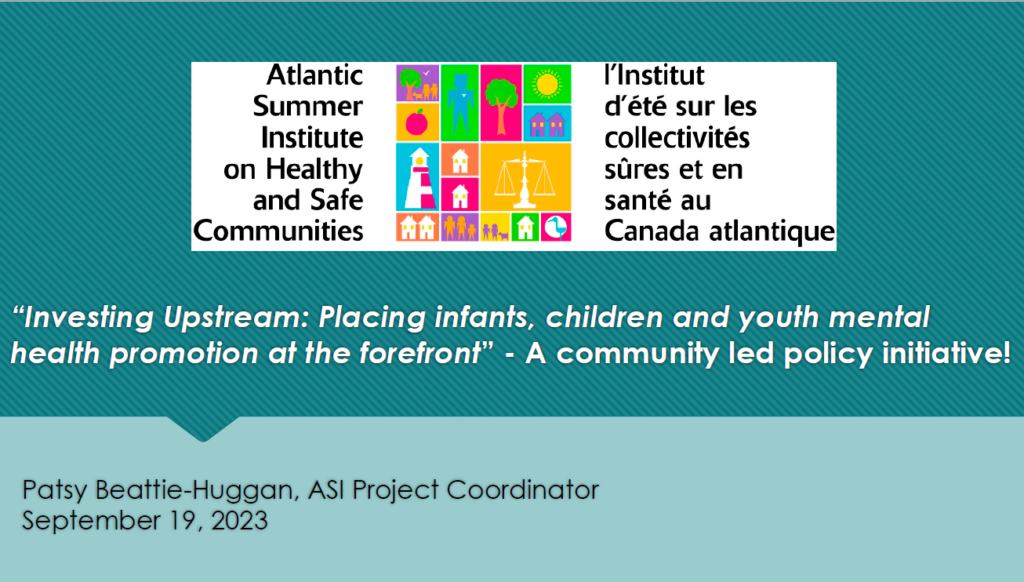 |
6. “Investing Upstream: Placing infants, children and youth mental health promotion at the forefront” – A community led policy initiative! Presented by Patsy Beattie-Huggan, Coordinator, Atlantic Summer Institute on Healthy and Safe Communities (ASI) |
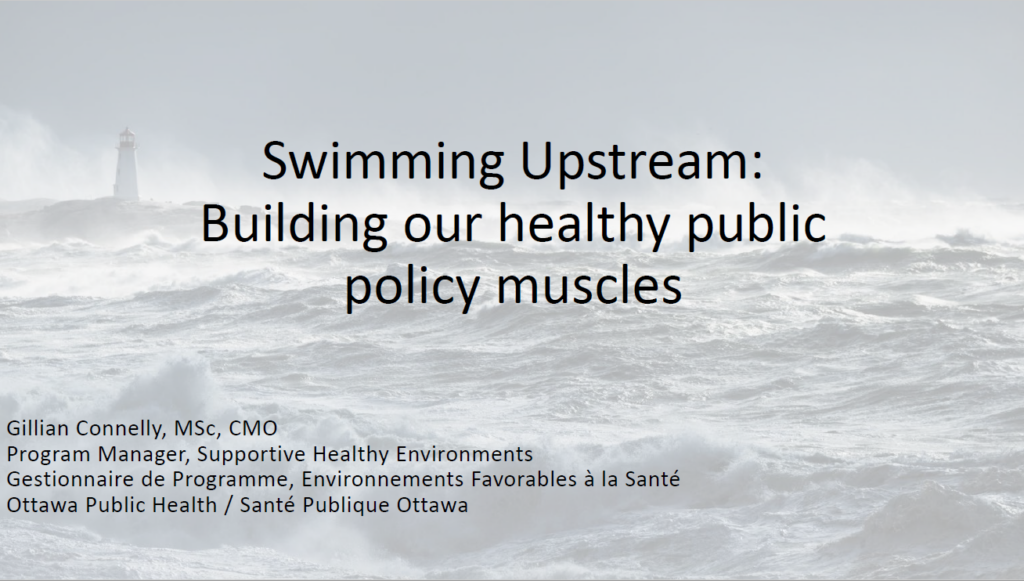 |
7. Swimming Upstream: Building our healthy public policy muscles Presented by Gillian Connelly, Program Manager, Supportive Healthy Environments, Ottawa Public Health |
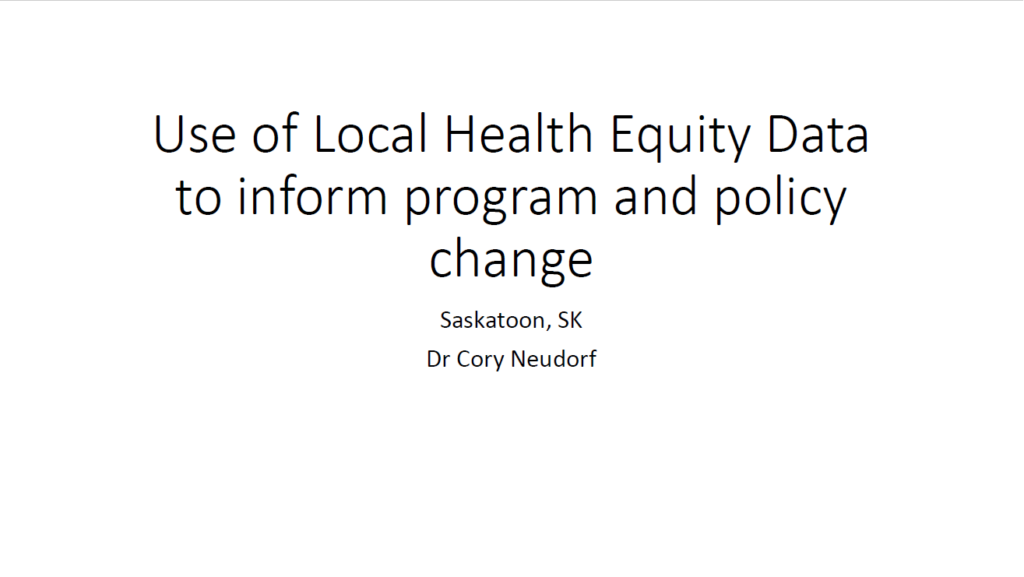 |
8. Use of Local Health Equity Data to inform program and policy change Presented by Cory Neudorf, Professor, Department of Community Health and Epidemiology, College of Medicine, University of Saskatchewan; President, Urban Public Health Network |
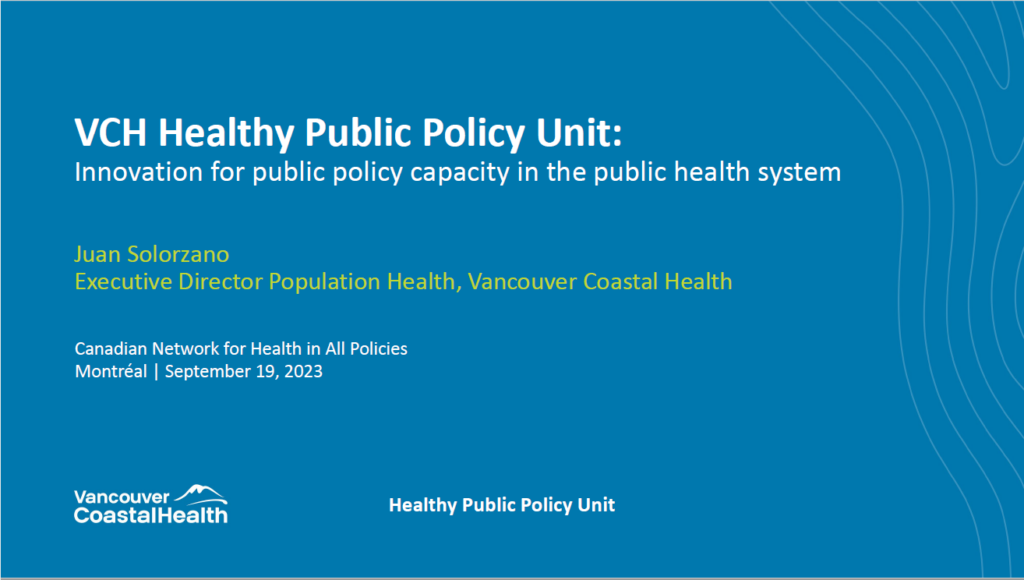 |
9. VCH Healthy Public Policy Unit: Innovation for public policy capacity in the public health system Presented by Juan Gabriel Solórzano, Executive Director, Population Health, Vancouver Coastal Health. |
Day 2 – September 20, 2023
Panel III – Measuring Progress and Impact
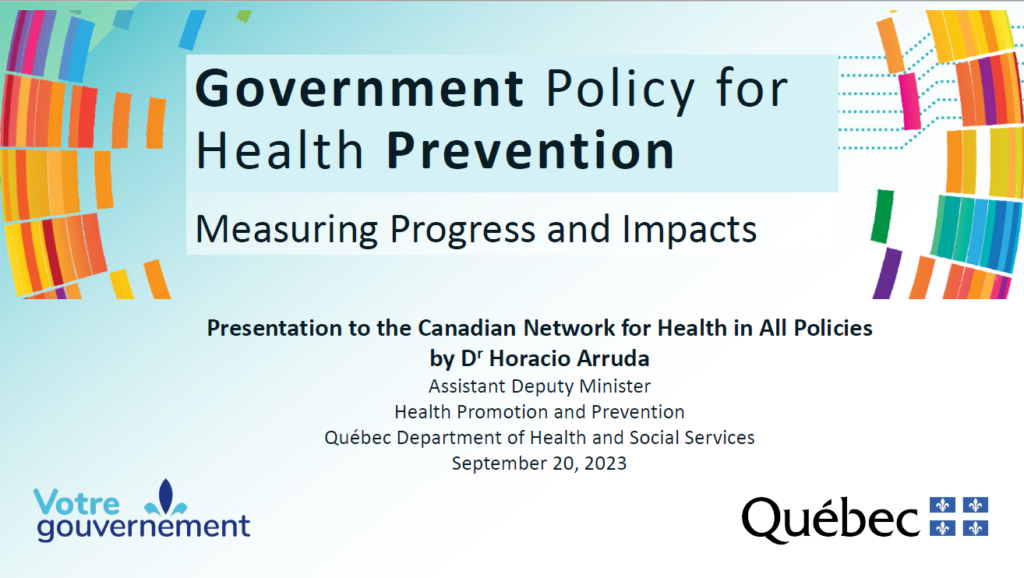 |
10. Government Policy for Health Prevention: Measuring Progress and Impacts Presented by Horacio Arruda, Sous-ministre adjoint, Direction générale de santé publique, Ministère de la Santé et des Services sociaux |
| 11. This Powerpoint Presentation is not available online but you can consult the website of the Solution Six initiative here: Solution Six – Action for Health, Government of Nova Scotia Presentation offered by Jennifer Heatley, Executive Director, Solution 6 – Action for Health, Government of Nova Scotia |
|
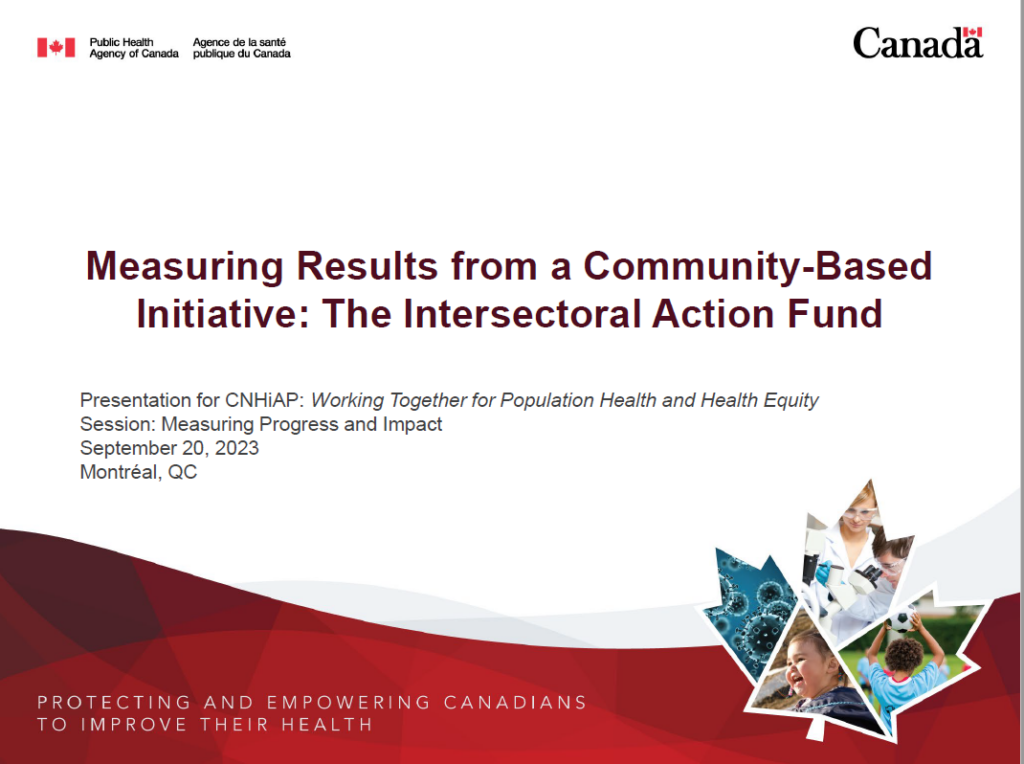 |
12. Measuring Results from a Community-Based Initiative: The Intersectoral Action Fund Presented by Kelsey Lucyk, Acting Manager of Intersectoral Partnerships and Initiatives, Public Health Agency of Canada |
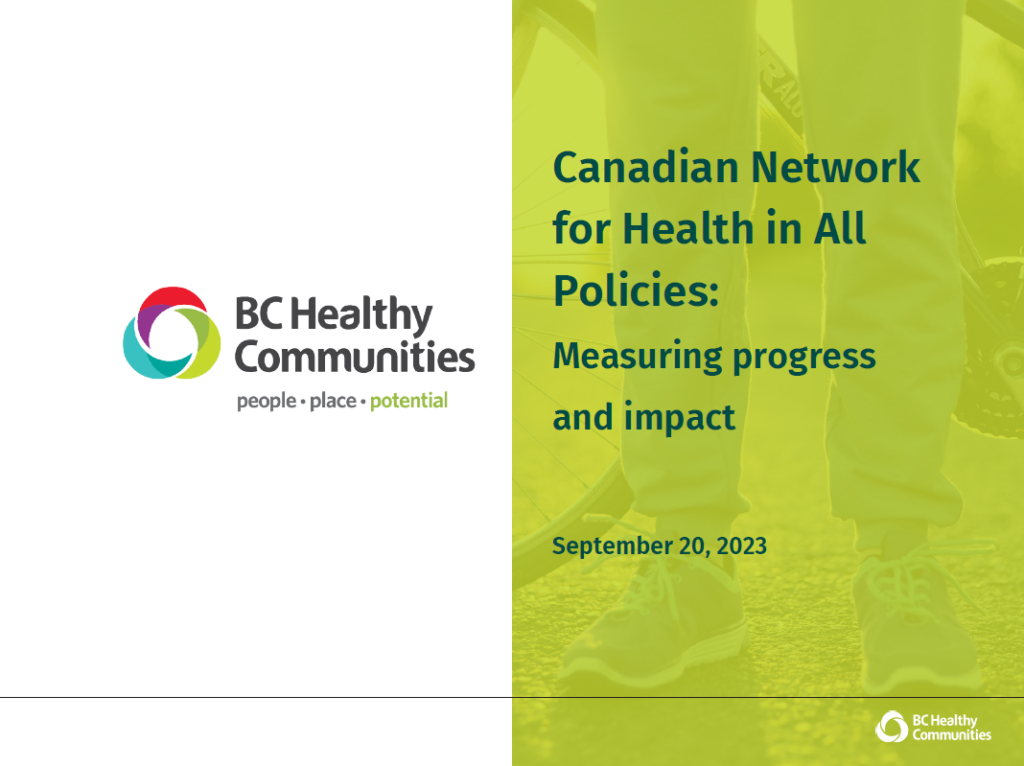 |
13. Canadian Network for Health in All Policies: Measuring progress and impact Presented by Jodi Mucha, Executive Director, BC Healthy Communities Society (BCHC), British Columbia |
Panel IV – Research & Practice: Mobilizing Knowledges and Supporting Practice
|
14. This Powerpoint Presentation is not available online but you can consult the website of the |
|
|
15. Research leads to better-equipped practitioners |
|
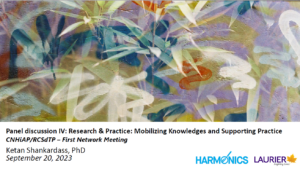 |
16. HARMONICS – HiAP Analysis using Realist Methods ON International Case Studies Presented by Ketan Shankardass: Associate Professor, Department of Health Sciences, Wilfrid Laurier University |



